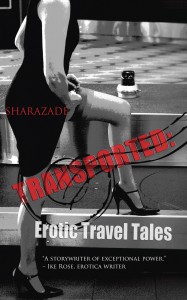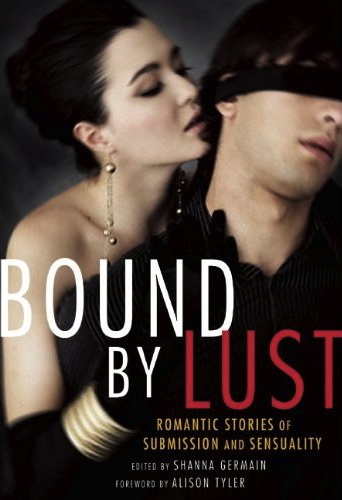I was recently traveling for work in Latin America. I had a few days off when my scheduled work was done, and I decided to take a short internal flight to see some sights — the land is large, time is short, was my thinking.
For some reason, we were required to be at the airport two hours early — for a flight that was on time and took about 10 minutes to board. Practically the full two hours then was spent in one small waiting room of a domestic airport, which did at least offer seats, some posters on the wall, and free coffee (seriously! free coffee! and it was good, too!).
For a long day of trekking, I hadn’t brought a laptop or reading material. Fortunately, a fellow passenger (I guess also without reading material) struck up a conversation. He was a doctor, from Germany, who’d been attending a medical conference and now was enjoying his few days off. We talked about a lot of things — health care systems in Germany and the US, travel, the country we were in, and so on, and at one point found ourselves on the subject of the US economy.
He said he could tell the effects of the US recession by the way Americans had become more “calculating.” Just as I was wondering if I’d gotten more sly and devious in recent years, he explained that by that he meant that when he saw Americans these days, either in Europe or when he traveled to the States, they were always calculating and figuring out the cost of things. How much would it cost to rent a car? What would that meal cost in dollars? How much to add a third night in the hotel? Which he said they didn’t use to do.
“For me,” he explained,” “when I’m on vacation, I don’t calculate. I’ve already made the decision to go. Like this tour. If something comes up that costs another 10 euros, I don’t think about that, I just pay it.”
Frantically, I calculated 10 euros — hey, that’s nearly 14 dollars! or 112 Local Currency Units, or twice what I paid for dinner last night. Must be nice being a doctor!
My first reaction was that I’ve always “calculated” costs, recession or no. But as I thought about our exchange later, I realized it’s not quite so simple. What “a lot” of money is depends so much on the situation. $50 is an outrageous price for a dinner entrée (in my world); I’d consider it for a dress for a close friend’s wedding; it’s a hell of a deal on an iPad. I’d just paid $300 without hesitation for a plane flight and transportation to one of the most amazing sites on the continent, while feeling grateful for the free coffee that would save me, what, 50 cents because now I wouldn’t have to buy my own. Context is everything.
One thing authors and publishers talk about with each other, and with readers, is book prices. With the boom of self-publishing, many authors are now put in the position of choosing their own prices for their books. Publishers and editors have to make those decisions for their authors.
Now, how do you set a book price? It’s not just a question of what it’s “worth.” You need to recoup your expenses (the time spent writing, the cost of an editor and a copy editor / proofreader, a typesetter, a cover designer, the cover art and any internal art, the paper, the salaries of the people in marketing, and so on), and you need to make enough of a profit for everyone that it’s worth it to continue the process. Retailers and online stores will take their cut. Typically, the author makes a royalty from each copy sold, a percentage of the book’s sale price, which can range from 10% to 40%, depending on the publisher and whether it’s a print book or an e-book and where it’s sold.
If you price a book too high, no one will buy it, and you make nothing. If you price it too low, unless you have a ton of sales, the money brought in is too low to be worth much. So really, you want the book to be priced at the highest amount that still seems fair and attractive to the reader.
But how much is that?
Let’s take a paperback novel of, oh, 200 pages. We’ll assume too that it’s a good book; one that you would be happy to have read, and one that you would be happy to own, at least for several months until your family complains that you have too many darn books all over the place and for heaven’s sake can’t we take some of these things to the thrift store because it’s not like you’re ever going to read them again, not when you keep getting more all the time (not that that ever happens in my house). Not a classic book, not one that you’re going to have dipped in bronze, but one that you’d truly enjoy, even if you only read it once.
How much would you pay?
(I’m going to give everyone a few moments to jot down their answers.)
Retailers are guessing that you’d spend around $5-$15 on a paperback from an unknown author, and less on an ebook. Maybe $9 for an ebook. Maybe $2. Nobody really knows! And it’s a different answer for every person, so that adds to the complexity too.
But I have another question. Not just “how much” would you pay, but “would” you pay anything at all? Do you buy books?
I assume that everyone still reading this blog post is interested in reading books (anyone who got here just by googling, hoping for hot S & M photos of my naked ass being whipped with a riding crop will have realized that there aren’t any here today) (because how would I hold the camera, people?). So, OK, how many of us buy books? How about new books?
I’ll confess that most of my books come from the library, and then after that, the used bookstore. I read a book, or at least part of one, every day of my life; I’ve worked in publishing and writing for years; but I still treat books to some extent as a luxury. I’d buy a crappy meal in an airport because “I have to eat” — but I wander through the bookstores in airports, thinking how much I’d like this or that one, and then (probably with that German guy watching), I calculate the price… oh, plus tax… and it seems self-indulgent.
In the US, at least, the “holiday season” is upon us. It’s being shoved down our throats, and has been since before Halloween. I don’t mind buying people gifts — honestly, I quite enjoy it, “commercialism” or no. But I remember that my favorite gifts to receive when I was growing up were books. So I’ve decided. That’s what I’m giving this year — books. Physical books for people who’d want them, ebooks for my green friends, maybe gift certificates for people whose tastes I just can’t fathom.
And at the risk of sounding obnoxious or even self-serving, I’m going to urge others to buy books too. They’re great value! $5 of $10 or $15 is not “too much” for something that brings such pleasure, and lasts for so long (books can be re-read, and loaned or given to friends). If you support your favorite authors, they will write more! I know I’m sounding a bit like Pledge Week on NPR, but it’s true. They’re not all just writing books for their health, you know. (OK, maybe they are for their mental health. But you know what I mean.) You don’t have to buy my book. I’ve reviewed several great ones here on this site. You don’t have to buy erotica, or even fiction. Buy whatever you please, and whatever pleases you. But no more complaining about how “kids today” don’t read, can’t think, can’t communicate, don’t know anything, if we don’t give them books and let them see us reading. We either value it or we don’t, and if we do, we should support it. And do it!
However, as a self-confessed “calculator,” I have sympathy too for those who find purchasing anything hard to rationalize at the moment. So… I will announce my first-ever book giveaway! Yes! Just like some of those other cool bloggers, I’m going to give away a book on this site. Signed, even (if you choose the hard copy and not the e-book). Not my book, but a novel by Jeremy Edwards (so, signed by him, obviously, and not by me). I’ve read it, and I approve of this book!
The giveaway will be held November 18 – 24. I’m going to be interviewing Jeremy here, posted November 18, and details of the giveaway will follow the interview. Check back!






